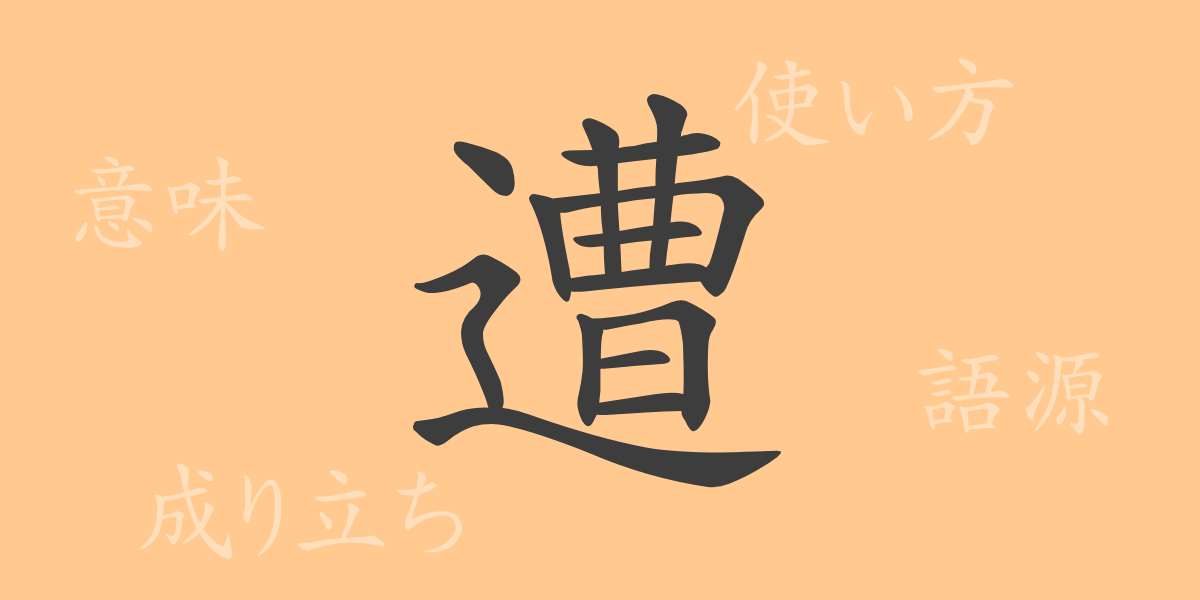Japanese Kanji, deeply embedded in everyday life and culture, offer a rich tapestry of meanings. One such Kanji, ‘遭’ (そう – sō), frequently used to describe encounters with various events or situations, beautifully illustrates the emotions and thoughts of the Japanese people. This article delves into the origins, meanings, usage, readings, and even the idioms and phrases associated with ‘遭’.
Origins of 遭 (そう – Sō)
The Kanji ‘遭’ originated in ancient China and was later adopted by Japan. It combines ‘辶’ (しんにょう – shinnyou), which means to move or travel, with ‘朝’, signifying facing each other. This fusion originally depicted the act of encountering or coming across something, evolving through the ages to its current usage in various cultural and linguistic contexts, maintaining its significance in modern Japanese.
Meaning and Usage of 遭 (そう – Sō)
‘遭’ primarily describes unexpected encounters, difficulties, or meetings with people. For example, ‘遭遇’ (encounter) refers to unexpectedly coming across people, objects, or situations, while ‘遭難’ (disaster) describes encountering accidents in hazardous environments like mountains or seas.
Readings, Stroke Count, and Radical of 遭 (そう – Sō)
Detailed information about the Kanji ‘遭’ is as follows:
- Readings: On’yomi (音読み) ‘ソウ’ (Sō), Kun’yomi (訓読み) ‘あう’ (au).
- Stroke Count: ‘遭’ consists of 14 strokes.
- Radical: 辶 (しんにょう – shinnyou).
Phrases and Idioms Using 遭 (そう – Sō) and Their Meanings
Idioms and phrases that include ‘遭’ are:
- 遭遇 (そうぐう – sōgū): To come across something unexpectedly.
- 遭難 (そうなん – sōnan): To encounter danger, typically in natural settings leading to perilous situations.
- 遭逢 (そうほう – sōhō): To meet a noble person or excellent thing.
- 艱難辛苦を遭う (かんなんしんくをあう – kannanshinku wo au): To experience hardships and suffering.
Conclusion on 遭 (そう – Sō)
The Kanji ‘遭’ significantly broadens the expressive capacity of the Japanese language. From its etymology to its various applications and the idioms it features in, ‘遭’ deeply influences Japanese life and culture. We hope this article enhances your understanding of ‘遭’, encouraging a richer appreciation of Japanese linguistic expressions.

























